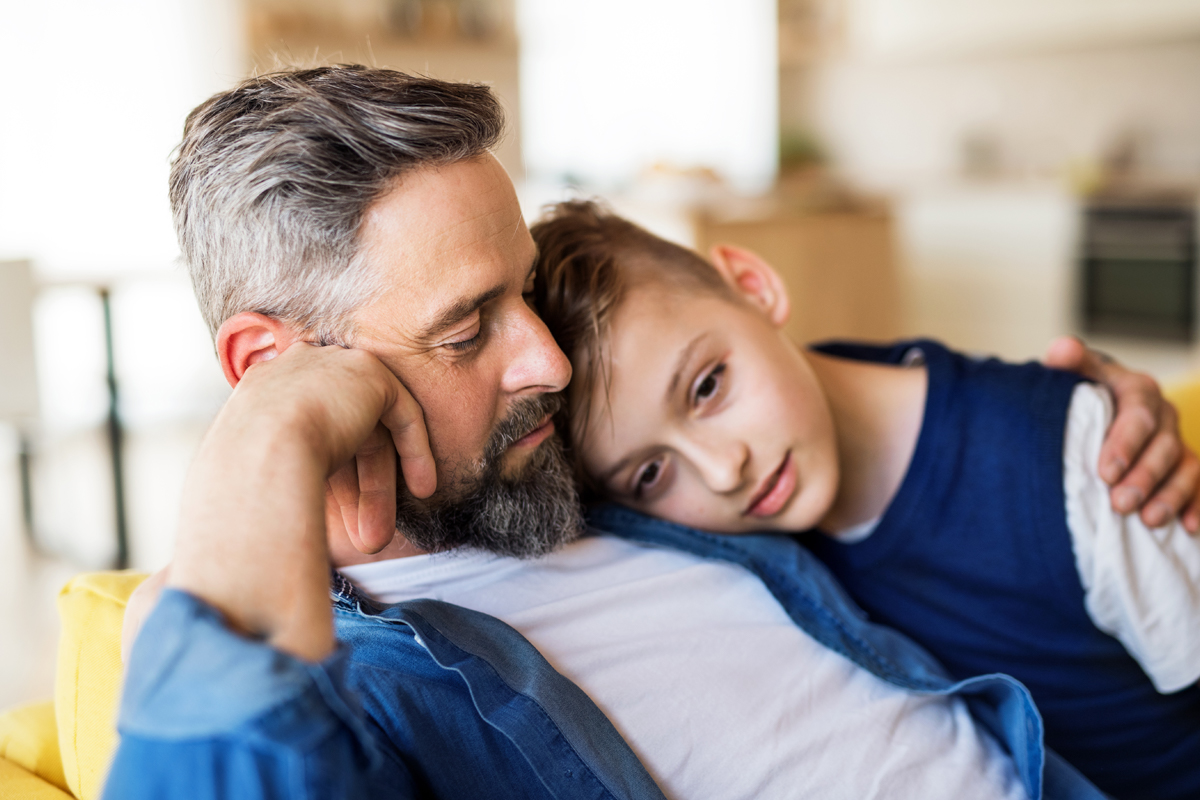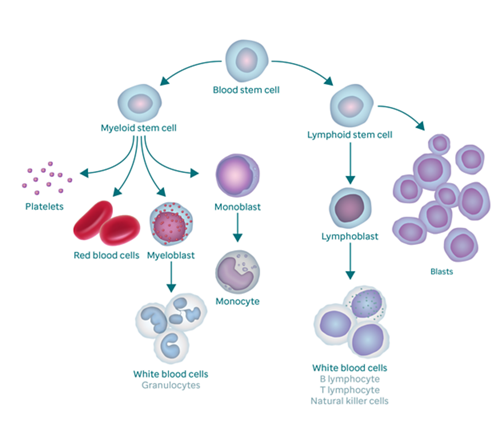Imagine being a teenager or young adult facing the overwhelming challenges of battling Acute Lymphoblastic Leukemia (ALL). The journey is undoubtedly tough, both emotionally and physically. However, amidst the struggle, there is a shining ray of hope – supportive care. In this article, we will explore the crucial role that supportive care plays in providing comfort, guidance, and empowerment to teenagers and young adults fighting against ALL. From managing side effects to boosting emotional well-being, supportive care becomes a lifeline for those navigating through this difficult chapter in their lives. So, join us as we delve into the untold importance of supportive care for teenagers and young adults bravely facing the trials of ALL.
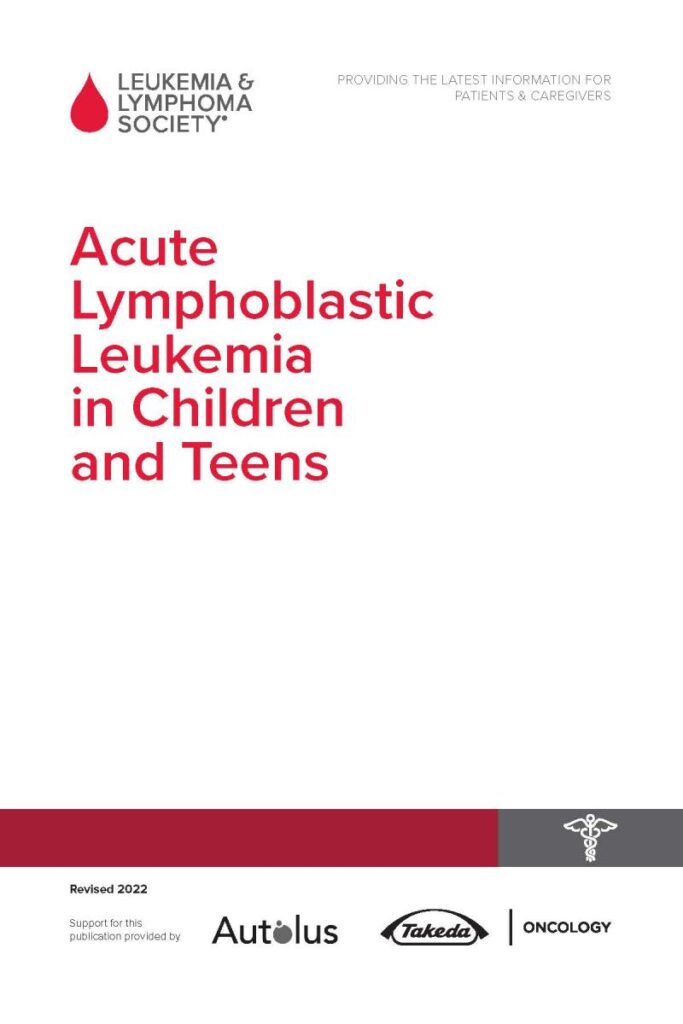
Understanding Acute Lymphoblastic Leukemia (ALL) in Teenagers and Young Adults
ALL: Definition and Characteristics
Acute Lymphoblastic Leukemia (ALL) is a type of blood cancer that affects the white blood cells, specifically the lymphocytes. It is the most common type of cancer in children and adolescents, but it can also occur in young adults. ALL originates in the bone marrow and rapidly progresses, leading to an overproduction of immature white blood cells. These immature cells replace healthy blood cells, leading to symptoms such as fatigue, easy bruising or bleeding, frequent infections, and bone pain.
Prevalence of ALL in Teenagers and Young Adults
While ALL is more commonly diagnosed in children, teenagers and young adults (TYAs) can also be affected by this disease. In fact, it is estimated that around 25% of ALL cases occur in the TYA population. Additionally, the biology and behavior of ALL in TYAs differ from that in younger children or older adults. TYAs often face unique challenges due to their transitional stage of life, including the impact of the disease on their education, career, and personal relationships.
Challenges and Unique Considerations for Teenagers and Young Adults Battling ALL
Being diagnosed with ALL as a teenager or young adult presents its own set of challenges and considerations. TYAs are at a crucial stage of their lives, where they are developing their independence and exploring their identities. The physical and emotional burdens of ALL can interrupt their normal development and disrupt their plans for the future. As TYAs battle this disease, they may experience feelings of isolation, fear, and uncertainty about their future. It is crucial to address these challenges and provide appropriate supportive care to ensure their well-being and help them navigate their journey through ALL.
Supportive Care: An Essential Component of ALL Treatment
The Role and Importance of Supportive Care
Supportive care plays a vital role in the comprehensive treatment of ALL in TYAs. It encompasses a range of services that aim to address the physical, emotional, educational, and practical needs of individuals undergoing cancer treatment. Supportive care is not a standalone treatment, but rather an integral part of the overall care plan. It helps manage the side effects of treatment, improve quality of life, and provide tailored support to meet the unique needs of TYAs.
The Holistic Approach to Supportive Care
Supportive care takes a holistic approach, recognizing that the challenges faced by TYAs extend beyond medical interventions. It acknowledges the importance of addressing the psychological, social, educational, and financial aspects of their lives. By taking a comprehensive approach to care, healthcare providers can improve treatment outcomes and enhance the overall well-being of TYAs battling ALL.
The Benefits of Supportive Care in Enhancing Treatment Outcomes
The inclusion of supportive care interventions in the treatment plan for TYAs with ALL has been shown to have numerous benefits. It helps manage treatment-related symptoms such as pain, nausea, and fatigue, thereby improving the overall tolerability of treatment. Supportive care also aids in maintaining a higher adherence to treatment protocols, which is crucial for achieving successful outcomes. Additionally, it fosters better communication between patients, families, and healthcare providers, leading to improved patient satisfaction and overall well-being.
Psychosocial Support: Addressing Emotional and Mental Needs
Understanding the Psychosocial Needs of Teenagers and Young Adults Battling ALL
The diagnosis and treatment of ALL can significantly impact the emotional and mental well-being of TYAs. They may experience anxiety, depression, fear, and distress due to the uncertainty surrounding their health and future. Psychosocial support focuses on addressing these needs and helping them cope with the psychosocial challenges that arise during their cancer journey. It offers a range of interventions and resources to support their mental and emotional health.
The Role of Mental Health Professionals in Supportive Care
Mental health professionals, such as psychologists and psychiatrists, play a crucial role in providing psychosocial support to TYAs with ALL. They are trained to assess and address the psychological needs of patients, offering counseling and therapy to help them cope with the emotional impact of the disease. These professionals work closely with medical teams to ensure a holistic approach to care and provide tailored support to meet the unique needs of each individual.
Psychosocial Interventions for Coping with Diagnosis and Treatment
Psychosocial interventions are designed to help TYAs cope with the diagnosis of ALL and the challenges associated with treatment. These interventions may include individual counseling, support groups, art therapy, mindfulness practices, and stress management techniques. By providing a safe space to express their emotions, learn coping strategies, and connect with peers who are going through similar experiences, psychosocial support can significantly improve the mental well-being of TYAs battling ALL.
Educational Support: Ensuring Academic Continuity
The Impact of ALL on Education and School Life
ALL and its treatment can have a significant impact on the education and school life of TYAs. The side effects of treatment, such as fatigue, frequent hospital visits, and compromised immune function, can disrupt their ability to attend school regularly and keep up with their peers. Moreover, the psychological and emotional toll of the disease may also affect their concentration, motivation, and overall academic performance.
Strategies and Interventions for Educational Support
To ensure academic continuity for TYAs battling ALL, it is essential to implement strategies and interventions that support their educational needs. These may include flexible scheduling, homebound instruction, tutoring, and accommodations for exams. Working closely with teachers, school administrators, and educational professionals can help tailor educational support to meet the unique requirements of each individual.
Collaboration between Medical Teams and Educational Institutions
Collaboration between the medical team and educational institutions is crucial to ensure a seamless transition between treatment and education. Regular communication and sharing of treatment plans, progress reports, and specific educational needs can help both sides provide appropriate support. By working together, healthcare providers and educators can support TYAs in maintaining their educational goals and minimize disruptions caused by ALL.
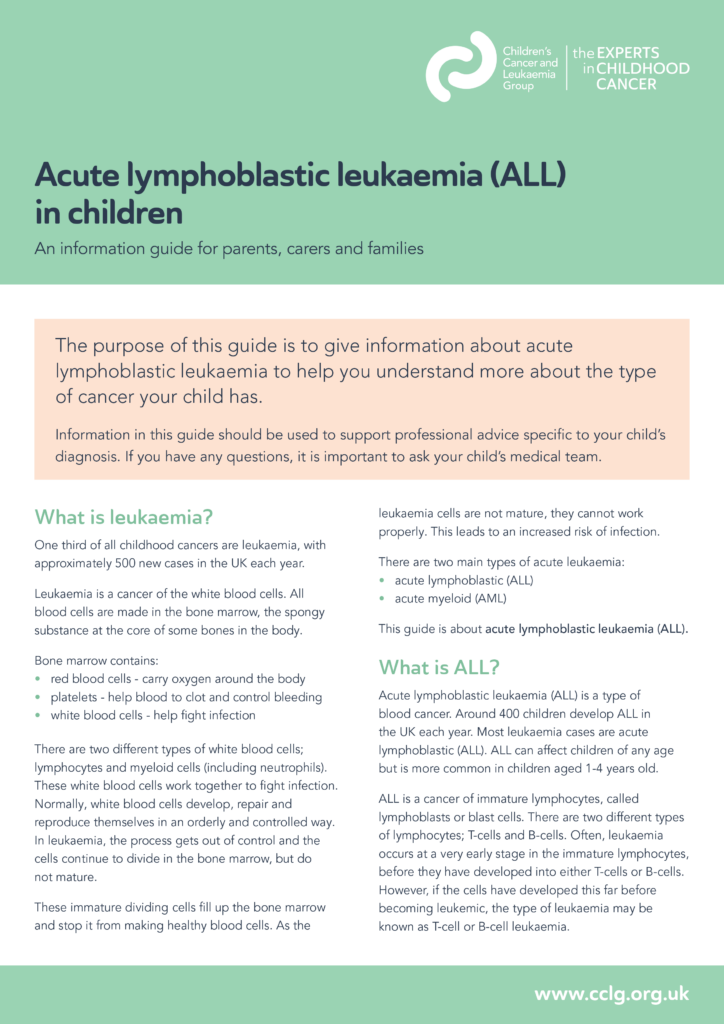
Nutritional Support: Maintaining Optimal Health and Well-being
The Importance of Adequate Nutrition During (ALL) Treatment
Maintaining proper nutrition is vital for TYAs battling ALL, as the disease and its treatment can affect their appetite, metabolism, and nutrient absorption. Adequate nutrition provides the body with the necessary nutrients for optimal functioning, supports the immune system, aids in recovery, and helps manage treatment-related side effects. Proper nutrition also plays a crucial role in overall well-being, helping to combat fatigue and enhance quality of life.
Addressing Nutritional Challenges and Side Effects
TYAs undergoing treatment for ALL may face various nutritional challenges and side effects that can impact their nutritional status. These may include loss of appetite, taste changes, mouth sores, nausea, and difficulty swallowing. Addressing these challenges requires a multidisciplinary approach, involving dietitians, oncologists, nurses, and other healthcare professionals who can provide guidance, dietary recommendations, and supportive care to manage these side effects.
Dietary Recommendations and Interventions
Dietary recommendations and interventions for TYAs with ALL aim to meet their nutritional needs, manage treatment-related side effects, and support their overall well-being. This may involve increasing calorie and protein intake, incorporating nutrient-dense foods, adapting meal plans to address taste changes, and managing specific dietary restrictions. Dietitians can work closely with patients to develop personalized dietary plans and provide ongoing support to optimize their nutritional status.
Physical Rehabilitation: Restoring Functionality and Quality of Life
The Impact of ALL Treatment on Physical Functioning
ALL treatments, including chemotherapy, radiation, and bone marrow transplantation, can have significant physical effects on TYAs. These treatments can cause fatigue, loss of muscle mass, weakness, decreased mobility, and other physical impairments. Physical rehabilitation aims to restore functionality, improve physical well-being, and enhance the quality of life for TYAs battling ALL.
Rehabilitation Interventions and Exercises
Physical rehabilitation involves interventions and exercises that target the specific physical challenges faced by TYAs with ALL. These may include strength training, balance exercises, endurance training, and range-of-motion exercises. Rehabilitation professionals, such as physical therapists and occupational therapists, work closely with patients to develop tailored rehabilitation programs that address their individual needs, improve physical function, and promote independence.
Supportive Care for Long-term Survivorship
Supportive care for TYAs extends beyond the treatment phase and into long-term survivorship. Physical rehabilitation plays a crucial role in helping survivors regain their physical function, manage the late effects of treatment, and improve their overall quality of life. By providing ongoing rehabilitation support, survivors can continue to thrive and live fulfilling lives post-treatment.
Social Support: Building a Solid Support Network
Importance of Social Connections and Supportive Relationships
Social support is essential for TYAs battling ALL. It provides them with a sense of belonging, emotional support, and practical assistance throughout their cancer journey. Having a solid support network is crucial for coping with the challenges of diagnosis, treatment, and survivorship. Social connections can help reduce feelings of isolation, provide encouragement, and offer a safe space for sharing experiences and emotions.
Peer Support Programs for Teenagers and Young Adults
Peer support programs specifically designed for TYAs can be instrumental in building social connections and providing emotional support. These programs bring together individuals who are going through similar experiences, allowing them to connect, share insights, and learn from one another. Peer support can provide a unique perspective and understanding that may not be found elsewhere, offering a sense of comfort and empowerment for TYAs battling ALL.
Supportive Community Resources and Organizations
Community resources and organizations play a vital role in providing social support to TYAs with ALL and their families. These resources may offer support groups, online communities, mentoring programs, and recreational activities tailored to the needs of TYAs. By connecting with supportive community organizations, TYAs can access additional resources, find a sense of belonging, and build a strong network of individuals who understand and can support their unique challenges.
Fertility Preservation: Addressing Reproductive Concerns
Potential Impact of ALL Treatment on Fertility
ALL treatments, particularly high-dose chemotherapy and radiation therapy, can have detrimental effects on fertility for both males and females. These treatments can damage reproductive organs, affect hormone levels, and decrease fertility potential. For TYAs who desire to have children in the future, fertility preservation options should be discussed and considered as an integral part of their overall care plan.
Options for Fertility Preservation
There are various fertility preservation options available for TYAs with ALL. For males, sperm banking is a commonly used method to preserve fertility. Females have several options, including oocyte cryopreservation (egg freezing), embryo cryopreservation, and ovarian tissue cryopreservation. Each fertility preservation option has its own considerations and success rates, and it is essential for TYAs to discuss these options with healthcare providers specialized in fertility preservation.
Counseling and Decision-making Support
Making decisions regarding fertility preservation can be overwhelming for TYAs and their families. They may have concerns about the feasibility, cost, and potential outcomes of fertility preservation procedures. Counseling and decision-making support from healthcare professionals, reproductive specialists, and fertility counselors can provide the necessary guidance and help TYAs make informed choices regarding their reproductive future.
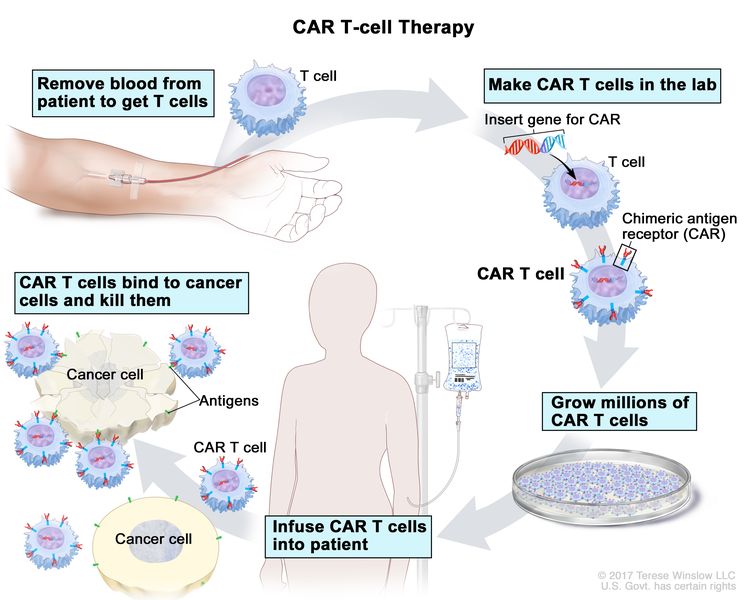
Financial Support: Alleviating the Burden of Costs
The Financial Impact of ALL Treatment
The treatment for ALL can be financially burdensome for TYAs and their families. Medical expenses, including doctor consultations, hospital stays, diagnostic tests, treatment medications, and additional supportive care services, can accumulate quickly. Furthermore, the impact of cancer treatment on employment and productivity can further strain financial resources during an already challenging time.
Financial Assistance Programs and Resources
Various financial assistance programs and resources are available to help alleviate the financial burden of ALL treatment. These programs offer support in the form of grants, scholarships, hospital charity programs, and assistance with medication costs. Additionally, organizations and foundations dedicated to supporting patients with cancer may provide financial resources, transportation assistance, lodging, and other practical support.
Navigating Insurance and Healthcare Costs
Navigating insurance coverage and understanding healthcare costs can be complex for TYAs and their families. It is crucial to be well-informed about insurance policies, coverage options, and potential out-of-pocket expenses. Consulting with healthcare providers, insurance representatives, and financial counselors can aid in navigating the financial aspects of ALL treatments and ensure that TYAs have access to the necessary care without excessive financial strain.
Transitioning to Survivorship: Long-term Follow-up and Support
Survivorship Care Plans and Monitoring
As TYAs complete treatment and transition into survivorship, long-term follow-up, and support become key components of their care. Survivorship care plans outline the specific monitoring and follow-up requirements for each individual, including regular check-ups, screenings, and assessments to detect potential late effects of treatment or disease recurrence. Close monitoring and adherence to survivorship care plans help maintain optimal health and well-being.
Late Effects and Long-term Health Considerations
Survivors of ALL may experience late effects of treatment that can impact their long-term health and quality of life. These late effects may include cardiac complications, secondary cancers, fertility issues, cognitive impairments, and psychological challenges. Awareness and proactive management of these effects through regular screenings, lifestyle modifications, and early interventions can help minimize their impact and ensure a healthier and more fulfilling survivorship.
Supportive Care for Emotional and Practical Transitions
Transitioning from active cancer treatment to survivorship brings its own set of emotional and practical challenges. TYAs may experience mixed emotions, including relief, anxiety, and uncertainty about the future. Supportive care during this transition period involves addressing the emotional needs of survivors, providing resources for managing potential long-term effects, and helping them navigate practical aspects such as employment, education, insurance, and fertility concerns. By ensuring continued support, survivors can successfully transition into a new phase of their lives while addressing their unique needs and challenges.
Supportive care is an essential component of the comprehensive treatment of acute lymphoblastic leukemia in teenagers and young adults. By addressing their physical, emotional, educational, and practical needs, supportive care aims to improve treatment outcomes, enhance overall well-being, and provide the necessary tools for TYAs to thrive throughout their cancer journey. From psychosocial support and educational assistance to nutritional and physical rehabilitation, a holistic approach to care can make a significant difference in the lives of TYAs battling this disease. With the right support network, resources, and interventions in place, TYAs can navigate the challenges of ALL and transition into survivorship with hope, resilience, and improved quality of life.
Watch This Video Below
Related Terms About The Importance of Supportive Care for Teenagers and Young Adults Battling Acute Lymphoblastic Leukemia
Acute Lymphoblastic Leukemia In 18 Year Old, Acute Lymphoblastic Leukemia In Young Adults, Adult Acute Lymphoblastic Leukemia In, Adult Acute Lymphoblastic Leukemia Symptoms, Adult Acute Lymphoblastic Leukemia Treatment, Adult Acute Lymphocytic Leukemia Treatments, How Common Is Leukemia In Young Adults, Is Leukemia Common In Young Adults, Most Common Leukemia In Young Adults, What Causes Leukemia In Young Adults
